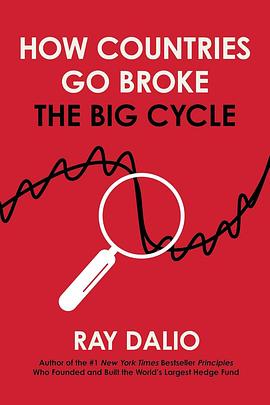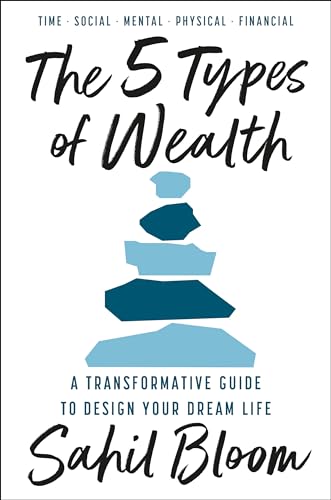2025年
控糖革命 [图书] Goodreads 豆瓣 谷歌图书
Glucose Revolution
7.5 (38 个评分)
作者:
[法]杰西·安佐斯佩(Jessie Inchauspé)
译者:
张艳娟
浙江科学技术出版社
2024
- 1
其它标题:
控糖革命
对于现代人来说,忙着减肥、忙着美肤、忙着健身,但同时失眠、焦虑、痤疮、糖尿病等亚健康问题又如影随形。法国“葡萄糖女神”、生物化学家杰西·安佐斯佩告诉你,这些亚健康问题往往都是由我们体内的血糖水平变化引起的,只是我们不自知而已。若置之不理,皮肤问题、情绪问题往往就会接踵而至,情况严重的话,更会引发2型糖尿病、多囊卵巢综合征等身体问题。
杰西·安佐斯佩在《控糖革命》一书中,提出了三个关键性的、颠覆常识的观点:
1.不是只有糖尿病人才需要关心血糖,80%的现代人都有血糖方面的问题;
2.我们不只要控制血糖,更重要的是要控制血糖峰值的变化;
3.比节食更有效的控糖方法是改变吃的顺序。
全书分为三大部分——为什么要控糖、出现葡萄糖峰值有哪些危害、轻松控糖的10个小窍门,通过8个章节,系统阐释了如何在不节食、不放弃我们喜爱的食物的情况下,用10个简单而令人惊讶的方法平衡我们的血糖水平,提升和改善我们的健康状况,包括睡眠、情绪、健康、皮肤、体重,甚至减缓衰老。
杰西·安佐斯佩在《控糖革命》一书中,提出了三个关键性的、颠覆常识的观点:
1.不是只有糖尿病人才需要关心血糖,80%的现代人都有血糖方面的问题;
2.我们不只要控制血糖,更重要的是要控制血糖峰值的变化;
3.比节食更有效的控糖方法是改变吃的顺序。
全书分为三大部分——为什么要控糖、出现葡萄糖峰值有哪些危害、轻松控糖的10个小窍门,通过8个章节,系统阐释了如何在不节食、不放弃我们喜爱的食物的情况下,用10个简单而令人惊讶的方法平衡我们的血糖水平,提升和改善我们的健康状况,包括睡眠、情绪、健康、皮肤、体重,甚至减缓衰老。
数据密集型应用系统设计 [图书] 豆瓣
Designing Data-Intensive Applications
9.6 (18 个评分)
作者:
Martin Kleppmann
译者:
赵军平
/
李三平
…
中国电力出版社
2018
- 9
全书分为三大部分:
第一部分,主要讨论有关增强数据密集型应用系统所需的若干基本原则。首先开篇第1章即瞄准目标:可靠性、可扩展性与可维护性,如何认识这些问题以及如何达成目标。第2章我们比较了多种不同的数据模型和查询语言,讨论各自的适用场景。接下来第3章主要针对存储引擎,即数据库是如何安排磁盘结构从而提高检索效率。第4章转向数据编码(序列化)方面,包括常见模式的演化历程。
第二部分,我们将从单机的数据存储转向跨机器的分布式系统,这是扩展性的重要一步,但随之而来的是各种挑战。所以将依次讨论数据远程复制(第5章)、数据分区(第6章)以及事务(第7章)。接下来的第8章包括分布式系统的更多细节,以及分布式环境如何达成一致性与共识(第9章)。
第三部分,主要针对产生派生数据的系统,所谓派生数据主要指在异构系统中,如果无法用一个数据源来解决所有问题,那么一种自然的方式就是集成多个不同的数据库、缓存模块以及索引模块等。首先第10章以批处理开始来处理派生数据,紧接着第11章采用流式处理。第12章总结之前介绍的多种技术,并分析讨论未来构建可靠、可扩展和可维护应用系统可能的新方向或方法。
第一部分,主要讨论有关增强数据密集型应用系统所需的若干基本原则。首先开篇第1章即瞄准目标:可靠性、可扩展性与可维护性,如何认识这些问题以及如何达成目标。第2章我们比较了多种不同的数据模型和查询语言,讨论各自的适用场景。接下来第3章主要针对存储引擎,即数据库是如何安排磁盘结构从而提高检索效率。第4章转向数据编码(序列化)方面,包括常见模式的演化历程。
第二部分,我们将从单机的数据存储转向跨机器的分布式系统,这是扩展性的重要一步,但随之而来的是各种挑战。所以将依次讨论数据远程复制(第5章)、数据分区(第6章)以及事务(第7章)。接下来的第8章包括分布式系统的更多细节,以及分布式环境如何达成一致性与共识(第9章)。
第三部分,主要针对产生派生数据的系统,所谓派生数据主要指在异构系统中,如果无法用一个数据源来解决所有问题,那么一种自然的方式就是集成多个不同的数据库、缓存模块以及索引模块等。首先第10章以批处理开始来处理派生数据,紧接着第11章采用流式处理。第12章总结之前介绍的多种技术,并分析讨论未来构建可靠、可扩展和可维护应用系统可能的新方向或方法。
The PARA Method [图书] 豆瓣
作者:
Tiago Forte
Atria Books
2023
- 8
This accessible guide expands upon the “well-written, cogent, and useful” (David Allen, author of Getting Things Done) bestselling Building a Second Brain with actionable advice on how to improve your digital life in just a few minutes.
Living a modern life requires juggling a ton of information. But we were never taught how to manage this information effectively so that we can find what we need when we need it. In The PARA Method, Tiago Forte outlines a simple and intuitive four-step system that will help us sort all the information flooding our brains into four major categories—Projects, Areas, Resources, and Archives—allowing us to manage our commitments while achieving our goals and dreams.
-Projects are specific, short-term efforts that you are actively working on with a certain goal in mind, such as completing a website or renovating your bathroom.
-Areas are the larger, ongoing areas of responsibility (health, finances, etc.) that encompass those specific projects.
-Resources include content on a range of topics you’re interested in or that could be useful for your projects and areas.
-Archives include anything from the previous three categories that is now inactive, but you want to save for future reference.
With his easy-to-understand and engaging voice, Forte outlines his best practices and tips on how to successfully implement PARA, along with deep dives on everything from how to adopt habits to stay organized to how to use this system to enhance your focus. The PARA Method can be implemented in just seconds but has the power to transform the trajectory of your work and life using the power of digital organization.
Living a modern life requires juggling a ton of information. But we were never taught how to manage this information effectively so that we can find what we need when we need it. In The PARA Method, Tiago Forte outlines a simple and intuitive four-step system that will help us sort all the information flooding our brains into four major categories—Projects, Areas, Resources, and Archives—allowing us to manage our commitments while achieving our goals and dreams.
-Projects are specific, short-term efforts that you are actively working on with a certain goal in mind, such as completing a website or renovating your bathroom.
-Areas are the larger, ongoing areas of responsibility (health, finances, etc.) that encompass those specific projects.
-Resources include content on a range of topics you’re interested in or that could be useful for your projects and areas.
-Archives include anything from the previous three categories that is now inactive, but you want to save for future reference.
With his easy-to-understand and engaging voice, Forte outlines his best practices and tips on how to successfully implement PARA, along with deep dives on everything from how to adopt habits to stay organized to how to use this system to enhance your focus. The PARA Method can be implemented in just seconds but has the power to transform the trajectory of your work and life using the power of digital organization.
姥姥的外孙 (2024) [电影] 豆瓣 TMDB IMDb
หลานม่า
7.9 (215 个评分)
导演:
帕特·波尼蒂帕特
演员:
普提蓬·阿萨拉塔纳功
/
乌莎·西姆库姆
…
其它标题:
หลานม่า
/
หลานม่า
…
M出生于一个华侨家族中,20多岁的他还没找到正经工作,只得在家中做一个名不见经传的游戏主播。一次偶然姥姥检查出身患癌症,只有一年可活。这让M动了继承姥姥房产的心思。他找到独居的姥姥想要照顾姥姥最后的时光。在接下来的时间里,M也算尽心尽力,慢慢地他发现,姥姥其实是十分孤独的。虽然有三个儿女却不经常回来看她,大儿子只顾着自己的家庭,小儿子还因为赌博负债累累。因为不想连累子女什么事都自己忍着。她全心全意地爱着自己的没一个孩子却没有收到同等的回报。渐渐地,M不再将房子作为自己的目的,他是真心想要陪伴姥姥这最后的时光。姥姥的病情逐渐严重,她看到负债的小儿子便把房子给了小儿子。M十分生气,他只是觉得姥姥将自己的爱错付,因为小儿子根本不领情。可当看到虚弱的姥姥躺在养老院,他却觉得一切都不重要,只要还能陪伴她。好景不长,姥姥去世了。M收到银行的电话通知他姥姥为他存了一大笔钱。这是在M小的时候姥姥就准备的,这么多年靠她自己卖粥积攒下来的。这时,M才明白,原来姥姥的爱是如此深沉,也让他明白亲情的重要。
A Brief History of Intelligence [图书] Goodreads 豆瓣
作者:
Max Bennett
Mariner Books
2023
- 10
其它标题:
A Brief History of Intelligence: Evolution, AI, and the Five Breakthroughs That Made Our Brains
Equal parts Sapiens, Behave, and Superintelligence, but wholly original in scope, A Brief History of Intelligence offers a paradigm shift for how we understand neuroscience and AI. Artificial intelligence entrepreneur Max Bennett chronicles the five “breakthroughs” in the evolution of human intelligence and reveals what brains of the past can tell us about the AI of tomorrow.
In the last decade, capabilities of artificial intelligence that had long been the realm of science fiction have, for the first time, become our reality. AI is now able to produce original art, identify tumors in pictures, and even steer our cars. And yet, large gaps remain in what modern AI systems can achieve—indeed, human brains still easily perform intellectual feats that we can’t replicate in AI systems. How is it possible that AI can beat a grandmaster at chess but can’t effectively load a dishwasher? As AI entrepreneur Max Bennett compellingly argues, finding the answer requires diving into the billion-year history of how the human brain evolved; a history filled with countless half-starts, calamities, and clever innovations. Not only do our brains have a story to tell—the future of AI may depend on it.
Now, in A Brief History of Intelligence, Bennett bridges the gap between neuroscience and AI to tell the brain’s evolutionary story, revealing how understanding that story can help shape the next generation of AI breakthroughs. Deploying a fresh perspective and working with the support of many top minds in neuroscience, Bennett consolidates this immense history into an approachable new framework, identifying the “Five Breakthroughs” that mark the brain’s most important evolutionary leaps forward. Each breakthrough brings new insight into the biggest mysteries of human intelligence. Containing fascinating corollaries to developments in AI, A Brief History of Intelligence shows where current AI systems have matched or surpassed our brains, as well as where AI systems still fall short. Simply put, until AI systems successfully replicate each part of our brain’s long journey, AI systems will fail to exhibit human-like intelligence.
Endorsed and lauded by many of the top neuroscientists in the field today, Bennett’s work synthesizes the most relevant scientific knowledge and cutting-edge research into an easy-to-understand and riveting evolutionary story. With sweeping scope and stunning insights, A Brief History of Intelligence proves that understanding the arc of our brain’s history can unlock the tools for successfully navigating our technological future.
In the last decade, capabilities of artificial intelligence that had long been the realm of science fiction have, for the first time, become our reality. AI is now able to produce original art, identify tumors in pictures, and even steer our cars. And yet, large gaps remain in what modern AI systems can achieve—indeed, human brains still easily perform intellectual feats that we can’t replicate in AI systems. How is it possible that AI can beat a grandmaster at chess but can’t effectively load a dishwasher? As AI entrepreneur Max Bennett compellingly argues, finding the answer requires diving into the billion-year history of how the human brain evolved; a history filled with countless half-starts, calamities, and clever innovations. Not only do our brains have a story to tell—the future of AI may depend on it.
Now, in A Brief History of Intelligence, Bennett bridges the gap between neuroscience and AI to tell the brain’s evolutionary story, revealing how understanding that story can help shape the next generation of AI breakthroughs. Deploying a fresh perspective and working with the support of many top minds in neuroscience, Bennett consolidates this immense history into an approachable new framework, identifying the “Five Breakthroughs” that mark the brain’s most important evolutionary leaps forward. Each breakthrough brings new insight into the biggest mysteries of human intelligence. Containing fascinating corollaries to developments in AI, A Brief History of Intelligence shows where current AI systems have matched or surpassed our brains, as well as where AI systems still fall short. Simply put, until AI systems successfully replicate each part of our brain’s long journey, AI systems will fail to exhibit human-like intelligence.
Endorsed and lauded by many of the top neuroscientists in the field today, Bennett’s work synthesizes the most relevant scientific knowledge and cutting-edge research into an easy-to-understand and riveting evolutionary story. With sweeping scope and stunning insights, A Brief History of Intelligence proves that understanding the arc of our brain’s history can unlock the tools for successfully navigating our technological future.
How Countries Go Broke [图书] 豆瓣
作者:
Ray Dalio
Avid Reader Press / Simon & Schuster
2025
- 9
Do big government debts and fast rates of adding to them threaten our collective well-being? In this groundbreaking analysis, Ray Dalio, one of the greatest investors of our time and the #1 New York Times bestselling author of Principles, shares the reasons behind his fears for the US debt markets, answering some of the most important market and economic questions we now face: Are there limits to debt growth? Can a big, important reserve currency country like the US really go broke? Is there such a thing as a “Big Debt Cycle” that can tell us when to worry about debt and what to do about it?
For decades, politicians, policymakers, and investors have debated these questions, but the Big Debt Cycle that helps answer them is not talked about or well understood. With the US debt issue coming to a head, Dalio’s How Countries Go Broke provides the first-ever detailed analysis of the Big Debt Cycle, explaining its implications and offering a surprisingly straightforward solution to getting debt problems like the ones the US faces under control.
For decades, politicians, policymakers, and investors have debated these questions, but the Big Debt Cycle that helps answer them is not talked about or well understood. With the US debt issue coming to a head, Dalio’s How Countries Go Broke provides the first-ever detailed analysis of the Big Debt Cycle, explaining its implications and offering a surprisingly straightforward solution to getting debt problems like the ones the US faces under control.
The 5 Types of Wealth: A Transformative Guide to Design Your Dream Life [图书] 谷歌图书 Goodreads 豆瓣
作者:
Sahil Bloom
Ballantine Books
2025
- 2
其它标题:
The 5 Types of Wealth
A groundbreaking guide to rejecting the default path and designing your dream life—a life centered around The 5 Types of Wealth . Launch your journey to fulfillment with this transformative system from inspirational writer, speaker, and entrepreneur Sahil Bloom.
Harsh You’ve been lied to. Throughout your life, you’ve been slowly indoctrinated to believe that money is the only type of wealth. The Your wealthy life may involve money, but in the end, it will be defined by everything else.
In The 5 Types of Wealth , Sahil Bloom offers a transformative guide for redesigning your life around five types of wealth—Time Wealth, Social Wealth, Mental Wealth, Physical Wealth, and Financial Wealth—that will lead to a durable satisfaction and happiness you can build and maintain across the seasons of your life.
Whether you are a recent college graduate, mid-life warrior, or a retiree, this playbook will unlock new levels of freedom and fulfillment,
• Control over how you spend your time
• Depth of connection with those around you
• Clarity of purpose, presence, and decision making
• Improved health and vitality
• Simple pathways to financial independence
Bloom’s unique blend of storytelling, questions, and actionable insights enables readers to make immediate positive change and build the joyful, balanced lives they’d previously only dreamed of.
Harsh You’ve been lied to. Throughout your life, you’ve been slowly indoctrinated to believe that money is the only type of wealth. The Your wealthy life may involve money, but in the end, it will be defined by everything else.
In The 5 Types of Wealth , Sahil Bloom offers a transformative guide for redesigning your life around five types of wealth—Time Wealth, Social Wealth, Mental Wealth, Physical Wealth, and Financial Wealth—that will lead to a durable satisfaction and happiness you can build and maintain across the seasons of your life.
Whether you are a recent college graduate, mid-life warrior, or a retiree, this playbook will unlock new levels of freedom and fulfillment,
• Control over how you spend your time
• Depth of connection with those around you
• Clarity of purpose, presence, and decision making
• Improved health and vitality
• Simple pathways to financial independence
Bloom’s unique blend of storytelling, questions, and actionable insights enables readers to make immediate positive change and build the joyful, balanced lives they’d previously only dreamed of.









